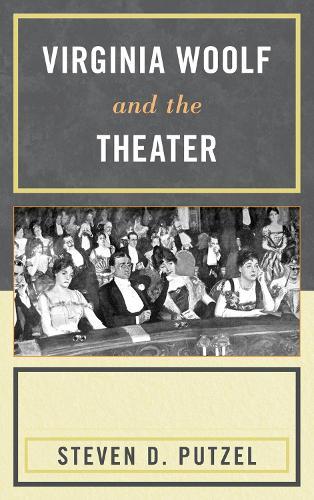Overview
Although the Woolf and Bloomsbury ""industry"" has examined Woolf’s work from virtually every angle, there has never been any full consideration of either how she was influenced by drama and theater or how she has influenced women playwrights. Virginia Woolf and the Theater demonstrates that drama, theater and performance formed a continuous subtext in Virginia Woolf's art and in her life, from the plays she attended as a child, to the roles she enacted as a member of the Play Reading Society, to the Bloomsbury theatrical evenings, to her own studio play Freshwater, to her many essays discussing drama and theater, to her final novel, Between the Acts, which fulfills her desire to create a work that combines verse, prose and drama. Drawing on published and unpublished diaries, letters, essays, and other documents, this book allows readers to witness Victorian, Edwardian, and mid-twentieth century British theater through Woolf’s eyes, from Christmas pantomimes, music hall skits, pageants, extravaganzas, and bowdlerized adaptations of Shakespeare that she saw as a child, through the plays of Ibsen, Chekhov and Shaw, and women’s groups such as The Pioneer Players, to the experimental plays of T.S. Eliot, Isherwood, Auden, and Arthur Schnitzler. By the 1930s Woolf formulated a theory of audience response, experimenting in her diaries, letters and even in her essays with narrative-free dialogue such as that employed on the stage. Although her attendance at the theater and her experiments with stage dialogue show up as early as Night and Day and The Voyage Out, her later novels become increasingly performative. Orlando, The Years, as well as parts of The Waves show the influence of her growing appreciation of stage dialogue and audience reception. The book concludes with an examination of many recent stage adaptations of Woolf’s work, arguing that productions relying on the conventions of Realism or Naturalism often fail to please either theater aficionados or avid readers of Woolf, while productions employing radio drama, multi-media performance art, dance, and even opera have proved to be well-suited to Woolf’s own experimental narrative techniques. While continuing to nourish the iconic “common reader” and to inspire generations of prose writers, Woolf’s work has also inspired contemporary women playwrights such as Caryl Churchill, Bryony Lavery, Pam Gems, Michelene Wandor, and Maureen Duffy.
Full Product Details
Author: Steven Putzel
Publisher: Fairleigh Dickinson University Press
Imprint: Fairleigh Dickinson University Press
Dimensions:
Width: 15.30cm
, Height: 1.90cm
, Length: 22.40cm
Weight: 0.376kg
ISBN: 9781611476231
ISBN 10: 1611476232
Pages: 250
Publication Date: 06 June 2013
Audience:
College/higher education
,
Postgraduate, Research & Scholarly
Format: Paperback
Publisher's Status: Active
Availability: In Print

This item will be ordered in for you from one of our suppliers. Upon receipt, we will promptly dispatch it out to you. For in store availability, please contact us.
Reviews
Putzel (English, Penn State) has written a meticulously researched and necessary study of Woolf's relationship to theater. Woolf attended pantomimes as an audience member early on, and she remained an active theatergoer through adulthood, attending a variety of plays (noted in her calendar and listed here in an invaluable appendix). As a reviewer, Woolf wrote extensively on theater, particularly the tension between the reader's imagined text and the performed text. As a writer, she experimented with performativity, theatricality, and narrative, and she wrote a play (Freshwater, first performed in 1923, based on her great-aunt Julia Cameron). Putzel toggles between biography, theater history, and analysis, offering chapters on Woolf's passion for opera, Bloomsbury theatricals (including the 1907-09 Play Reading Society), women playwrights and actors and Woolf's ambivalence toward their work, and adaptations of Woolf's work for the stage. All of this insightful scholarship is founded on research into unpublished archival material and situated in a useful history of Victorian and Edwardian theater. Putzel contributed Virginia Woolf and Theatre to The Edinburgh Companion to Virginia Woolf and the Arts, ed. by Maggie Humm (CH, May'11, 48-4938), and the present book provides a delightful expansion of that earlier essay. Summing Up: Highly recommended. CHOICE
Putzel (English, Penn State) has written a meticulously researched and necessary study of Woolf's relationship to theater. Woolf attended pantomimes as an audience member early on, and she remained an active theatergoer through adulthood, attending a variety of plays (noted in her calendar and listed here in an invaluable appendix). As a reviewer, Woolf wrote extensively on theater, particularly the tension between the reader's imagined text and the performed text. As a writer, she experimented with performativity, theatricality, and narrative, and she wrote a play (Freshwater, first performed in 1923, based on her great-aunt Julia Cameron). Putzel toggles between biography, theater history, and analysis, offering chapters on Woolf's passion for opera, Bloomsbury theatricals (including the 1907-09 Play Reading Society), women playwrights and actors and Woolf's ambivalence toward their work, and adaptations of Woolf's work for the stage. All of this insightful scholarship is founded on research into unpublished archival material and situated in a useful history of Victorian and Edwardian theater. Putzel contributed Virginia Woolf and Theatre to The Edinburgh Companion to Virginia Woolf and the Arts, ed. by Maggie Humm (CH, May'11, 48-4938), and the present book provides a delightful expansion of that earlier essay. Summing Up: Highly recommended. CHOICE Steven D. Putzel's Virginia Woolf and the Theater offers a sustained reading of Woolf's relationship to the theatre and drama. What Putzel describes as an 'overview' of his work on Woolf and the theatre appeared in 2010 in The Edinburgh Companion to Virginia Woolf and the Arts. However, Putzel here offers a much more exhaustive, if not as he points out 'definitive', exploration of both Woolf's personal encounters with and reactions to particular plays and playwrights, and her integration of these experiences into her critical and fictional writings. Putzel has done an enormous amount of research. The Year's Work In English Studies
Author Information
Steven Putzel is associate professor of English at Penn State University



